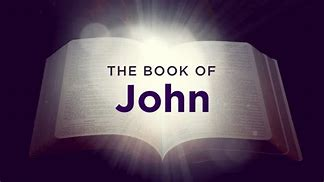The Wedding at Cana - {Interlinear <Greek>}
2:1 - On → • Καὶ<kai>} the {τῇ<ho>} third {τῇ τρίτῃ<ho tritos>} day {ἡμέρᾳ<hēmera>} there → was {ἐγένετο<ginomaia>} → wedding {γάμος<gamos>} at {ἐν<en>} Cana {Κανᾶ<Kana>} in → Galilee, {τῆς Γαλιλαίας,<ho Galilaia>} and {καὶ<kai>} the {ἡ<ho>} mother {Pμήτηρ<mētēr>} of → Jesus {τοῦ Ἰησοῦ<ho Iēsous>} was {ἦν<eimi>} there. {ἐκεῖ·<ekei>}
2:2 - • {δὲ 2de>} Jesus {ὁ Ἰησοῦς<ho Iēsous>} also {καὶ<kai>} was → invited {ἐκλήθη <kaleō>} to {εἰς<eis>} the {τὸν<ho>} wedding {γάμον.<gamos>} with {καὶ<kai>} his {αὐτοῦ <autos>} disciples. {οἱ μαθηταὶ <ho mathētēs>}
2:3 - When → • {καὶ<kai>} the → wine {οἴνου<oinos>} ranout, {ὑστερήσαντος <hystereō>} the [ἡ<ho>} mother {μήτηρ<mētēr>} of → Jesus {τοῦ Ἰησοῦ<ho Iēsous>} said {λέγει<legō>} to {πρὸς<pros>} him, {αὐτόν·<autos>} “They → have {ἔχουσιν.<echō>} no {οὐκ<ou>} wine.”{οἶνον<oinos>}
2:4 - And {καὶ<kai>} Jesus {ὁ Ἰησοῦς·<ho Iēsous>} said {λέγει<legō>} to → her, {αὐτῇ <autos>} “Woman, {γύναι;<gynē>} what {τί<tis>} does • this • have • to • do • with {καὶ<kai>} me? {ἐμοὶ<egō>} • σοί,<sy>} My {μου.<egō>} hour {ἡ ὥρα<ho hōra>} has → not yet {οὔπω<oupō>} come.” {ἥκει<hēkō>}
2:5 - His {αὐτοῦ<autos>} mother {ἡ μήτηρ<ho mētēr>} said {λέγει<legō>} to → the {τοῖς<ho>} servants, {διακόνοις·<diakonos>} “Do {ποιήσατε.<poieō>} whatever {ὅ<τι ἂν <hos tis an>} he → tells {λέγῃ<legō>} you.” {ὑμῖν,<sy>}
2:6 - Now {δὲ<de>} there → were {Ἦσαν<eimi>} six {ἓξ<hex>} stone {λίθιναι <lithinos>} water jars {ὑδρίαι<hydria>} there {ἐκεῖ<ekei>} for {κατὰ<kata>} the {τὸν <ho>} Jewish {τῶν Ἰουδαίων<ho Ioudaios>} rites → of → purification, {καθαρισμὸν <katharismos>} • {κείμεναι, <keimai>} each {ἀνὰ<ana>} holding {χωροῦσαι<chōreō>} twenty or thirty gallons. {μετρητὰς δύο ἢ τρεῖς.<metrētēs dyo ē treis>}
2:7 - • {αὐτοῖς<autos>} Jesus {ὁ Ἰησοῦς·<ho Iēsous>} said {λέγει<legō>] to • the • servants, • “Fill {γεμίσατε<gemizō>} the {τὰς<ho>} jars {ὑδρίας<hydria>} with → water.” {ὕδατος.<hydōr>} And {καὶ <kai>} they → filled {ἐγέμισαν<gemizō>} them {αὐτὰς<autos>} up to the brim. {ἕως ἄνω.<heōs anō>}
2:8 - And {καὶ<kai} he → said {λέγει<legō>} to → them, {αὐτοῖς·<autos>} “Now {νῦν<nyn>} draw {ἀντλήσατε<antleō>} some • out ← and {καὶ<kai>} take {φέρετε<pherō>} it • to → the {τῷ<ho>} master of the feast.” {ἀρχιτρικλείνῳ.<architrikleinos>} So {δὲ<de>} they {οἱ<ho>} took {ἤνεγκαν.<pherō>} it. •
2:9 - When {ὡς<hōs>} • {δὲ<de>} the {ὁ<ho>} master of the feast {ἀρχιτρίκλεινος <architrikleinos>} tasted {ἐγεύσατο<geuomai>} the {τὸ<ho>} water {ὕδωρ<hydōr>} now → become {γεγενημένον<ginomai>} wine, {οἶνον<oinos>} and {καὶ<kai>} did → not {οὐκ <ou>} know {ᾔδει<oida>} where → it → came {ἐστίν,<eimi>} from {πόθεν<pothen>} (though {δὲ<de>} the {οἱ<ho>} servants {διάκονοι<diakonos>} who {οἱ<ho>} had → drawn {ἠντληκότες<antleō>} the {τὸ <ho>} water {ὕδωρ,<hydōr>} knew), {ᾔδεισαν<oida>} the {ὁ <ho>} master of the feast {ἀρχιτρίκλεινος <architrikleinos>} called {φωνεῖ<phōneō>} the {τὸν<ho>} bridegroom {νυμφίον<nymphios>}
2:10 - and {καὶ<kai>} said {λέγει<legō>} to → him, {αὐτῷ·<autos>} “Everyone {πᾶς ἄνθρωπος<pas anthrōpos>} serves {τίθησιν,<tithēmi>} the {τὸν<ho>} good {καλὸν<kalos>} wine {οἶνον<oinos>} first, {πρῶτον<prōtos>} and {καὶ<kai>} when {ὅταν<hotan>} people • have → drunk {μεθυσθῶσιν,<methyskomai>} freely, ← then {τότε<tote>} the {τὸν<ho>} poor {ἐλάσσω·<elassōn>} wine. • But • you {σὺ<sy>} have → kept {τετήρηκας<tēreō>} the {τὸν<ho>} good {καλὸν<kalos>} wine {οἶνον<oinos>} until {ἕως<heōs>} now.” {ἄρτι.<arti>}
2:11 - This, {ταύτην<houtos>} the → first {ἀρχὴν<archē>} of → his • signs, {τῶν σημείων<hosēmeion>} Jesus {ὁ Ἰησοῦς<ho Iēsous>} did {ἐποίησεν<poieō>} at {ἐν<en>} Cana {Κανᾶ<Kana>} in → Galilee, {τῆς Γαλιλαίας<ho Galilaia>} and {καὶ <kai>} manifested {ἐφανέρωσεν<phaneroō>} his {αὐτοῦ,<autos>} glory. {τὴν δόξαν<ho doxa>} And {καὶ <kai>} his {αὐτοῦ.<autos>} disciples {οἱ μαθηταὶ<ho mathētēs>} believed {ἐπίστευσαν<pisteuō>} in {εἰς<eis>} him. {αὐτὸν<autos>}
2:12 - After {Μετὰ<meta>} this {τοῦτο<houtos>} he {αὐτὸς<autos>} went down {κατέβη <katabainō>} to {εἰς<eis>} Capernaum, {Καφαρναοὺμ<Kapharnaoum>} with {καὶ<kai>} his {αὐτοῦ<autos>} mother {ἡ μήτηρ<ho mētēr>} and {καὶ <kai>} his • brothers {οἱ ἀδελφοὶ<ho adelphos>} and {καὶ<kai>} his {αὐτοῦ,<autos>} disciples, {οἱ μαθηταὶ<ho mathētēs>} and {καὶ<kai>} they → stayed {ἔμειναν<menō>} there {ἐκεῖ <ekei>} for → a → few {οὐ πολλὰς<ou polys>} days. {ἡμέρας.<hēmera>}

John 2:1-12 -
The miracle of turning water into wine at the wedding in Cana of Galilee is the first of seven “sign” miracles that John chose to record in his Gospel. Also included are the healing of the royal official’s son (4:46–54), the healing of the paralytic at the Bethesda pool (5:1–17), the feeding of the 5,000 (6:1–14), the walking on water (6:16–21), the healing of the man born blind (9:1–41), and the raising of Lazarus (11:1–46). Signs, for John, answer the question, “Who is Jesus?” They do this in part by affirming one or more of the titles ascribed to Jesus in the prologue (1:1–18).
What is revealed about Jesus in this first sign? Through Christ all things were created; he has power over the material universe. Who is Jesus? He is the Messiah who has come in the fullness of time, to usher in the longed-for messianic age—in which wine (evidence of blessed fruitfulness and provision) will flow in overwhelming abundance and the mountains will drip with the best wine for the joy of God’s people (Joel 3:18; Amos 9:13–14; Jer. 31:12).
Who is Jesus? He is the One who takes what is meant for purification and provides blessing through it. In doing so, he shows that he transforms the daily Jewish purification rites by the power of his perfect life (cf. John 2:6–7 and Heb. 9:12; 10:10). Who is Jesus? He is not merely the guest at our weddings but the great eschatological bridegroom who makes us his bride, by the cost of his life (Eph. 5:22–33). He clothes us with the wedding garment of his own righteousness (Isa. 61:10) and prepares us for the great wedding banquet of the Lamb (Rev. 19:6–10).
Who is Jesus? He is the Lord of glory, who calls us to believe in him and to put our trust in him.
References:
All contents are reposted from ESV.org.
“Scripture quotations are from The ESV® Bible (The Holy Bible, English Standard Version®), copyright © 2001 by Crossway, a publishing ministry of Good News Publishers. Used by permission.
All rights reserved.”
Commentaires